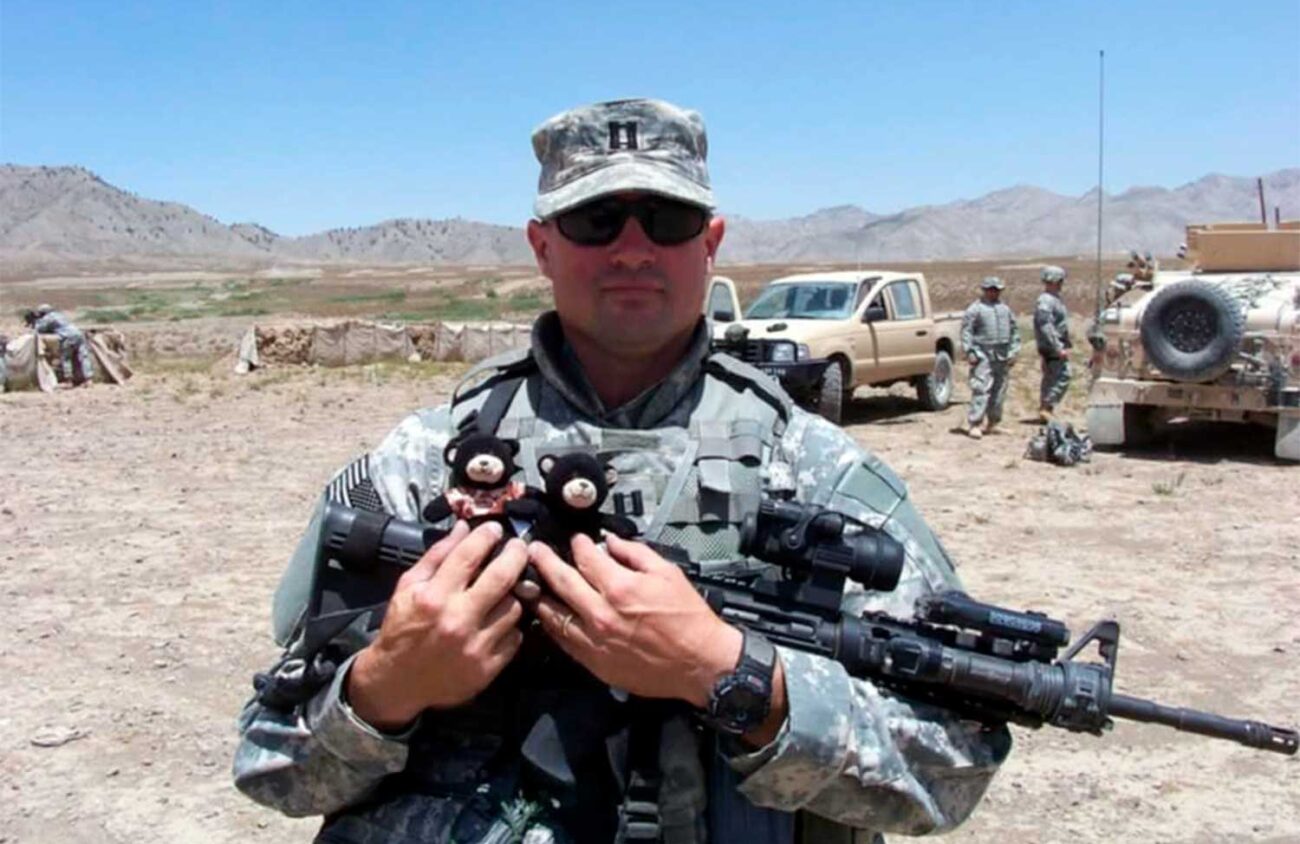Ten years ago on March 30, 2015, Brian Babb, a 49-year-old military veteran with PTSD, was armed and feeling suicidal, according to court documents. He had fired his gun and told his therapist as much when he called her for help.
Within an hour of that call, Babb was shot and killed by a Eugene police officer.
His sister, Stephanie Babb, is holding a memorial March 29 for Brian Babb and for others who have been killed by police violence. She says, “There will be an opportunity for people to get up and share stories about their own loved ones.”
Babb, who served with the Army National Guard in Afghanistan, had come to the door of his house after the police rolled up in an armored BearCat vehicle. Police said he was carrying a rifle, something the family’s lawyers later disputed. The rifle found by his side after a police officer shot him through the head was later found to be unloaded.
The memorial, Stephanie Babb says, is not just about Brian: “This is just a tribute to the warriors who have carried this burden of somebody’s demise,” and, “it just really brings an awareness to how fragile some situations can be, especially with veterans.”
A police investigation at the time ruled the shooting was justified, and in February 2020 a jury rejected a lawsuit the family filed in 2018. Stephanie Babb says “vital forensic investigative information was deemed inadmissible.”
A month later the COVID pandemic hit, and not long after that the Black Lives Matter protests lit up when George Floyd was murdered by Minneapolis police.
Stephanie Babb says of the civil suit, “We understood that if we’d won, it would be another affluent white family” and points to statistics showing Black and Latino people are more likely to be shot by law enforcement. She also points to the 2019 shooting deaths of Charlie Landeros and Eliborio Rodrigues by Eugene police.
A 2021 study shows 1,000 people are killed by police gunfire each year in the U.S. and that “Black Americans are disproportionately killed, as they make up 13 percent of the U.S. population yet 25 percent of those killed by police.” A 2024 study in the American Journal of Public Health found that behavioral health calls are a common interaction preceding injurious shootings by police.
The Eugene police auditor at the time, Mark Gissiner, pointed to flaws in the investigation into the shooting by the Interagency Deadly Force Investigations Team that he said meant the family didn’t have closure. The flaws included the investigative team leaving the bullet that killed Babb still lodged in the wall of his home, leaving Babb’s body for too long in the doorway where he was killed, not fingerprinting the 9-mm weapon later found in Babb’s truck to confirm it was the same gun he shot in the house and not fingerprinting or DNA testing the rifle by Babb’s body. Finally, there was no sightline investigation to ensure it was possible that Babb raised his rifle before the officer fired.
The investigation and report were left out of the trial.
A decade later Gissiner says that he still sees the design of the model of how Eugene handles investigations into officer-involved shootings as flawed. He says, “Nothing is going to change until something really bad happens — until an unarmed teen is shot and killed holding something that an officer mistakes as a gun. Someday it will happen, and there will be cries for the whole system to implode.”
Gissiner retired in 2021 but is currently serving as Eugene’s interim auditor.
In the wake of Brian Babb’s death, his family campaigned to reduce police shootings and change how police respond to veterans and those in a mental health crisis.
Ronda McGowan, Brian’s other sister, says, “To say I miss my brother would be like removing my arm or legs and saying, ‘Do you miss them?’”
She continues, “Hell yes, I miss him. Every day of my life and they can’t take that back. Brian, we tried, brother. We tried to help others to avoid the same thing that happened to you, being shot and killed by police. We have saved lives.”
Stephanie Babb says, “We go through things every day. We have car crashes. We lose family members to illness. There are all these tragedies.” But she says when it comes to police shootings, “One thing people forget is it’s the entity that we have to rely on in our communities to uphold and enforce the law in order to keep harmony and a sense of stability and safety.” And when someone is killed by the police, that sense is stolen from the families.
“Every year is a year he could have had with his family, with the community,” she says of the decade since his death.
Eugene police did not have comment for this story.
